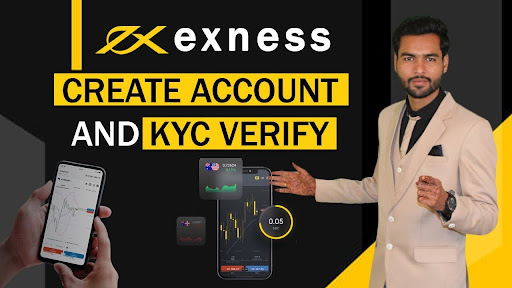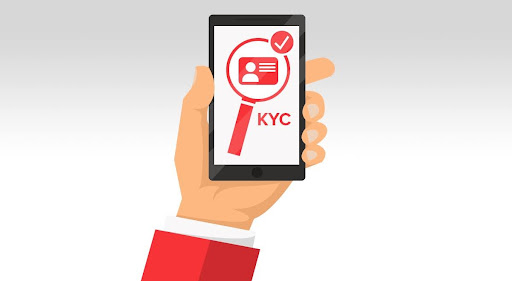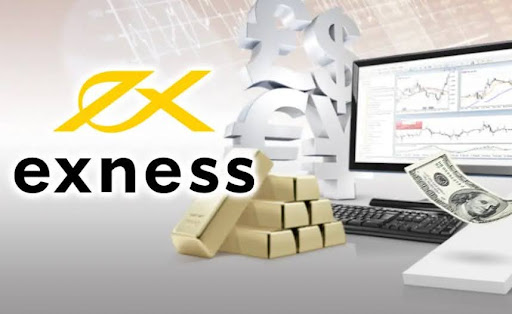
11 minute read
What are the KYC requirements for Exness?
Know Your Customer (KYC) is an essential compliance process that Exness follows to ensure the security and integrity of its trading platform. KYC verification helps to confirm the identity of traders, protect against fraudulent activities, and comply with international anti-money laundering (AML) regulations.


As a globally regulated broker, Exness requires traders to complete KYC verification before accessing full trading features, such as deposits, withdrawals, and leveraged trading. This process involves submitting valid identification documents and proof of residence to authenticate a trader’s identity and ensure compliance with financial regulations.
By implementing KYC procedures, Exness not only meets regulatory standards but also enhances trust, security, and transparency for its clients, creating a safer trading environment for all.
Introduction to KYC Requirements
Know Your Customer (KYC) requirements are a crucial aspect of financial security and regulatory compliance in the trading industry. KYC is a verification process that financial institutions, including forex brokers like Exness, implement to confirm the identity of their clients. This ensures that trading activities are conducted transparently, reducing the risks associated with fraud, identity theft, and money laundering.
For Exness, KYC requirements are designed to provide a secure trading environment by verifying the personal details of traders before granting full access to financial transactions. The process involves submitting identification documents, proof of residence, and in some cases, financial verification. These measures align with global anti-money laundering (AML) and counter-terrorism financing (CTF) laws, ensuring that all clients adhere to fair and legal trading practices.

Documents Required for KYC Verification
To comply with financial regulations and ensure a secure trading environment, Exness requires clients to complete the Know Your Customer (KYC) verification process. This involves submitting valid documents that confirm identity and address details. Below are the required documents for KYC verification:
1. Identity Verification
Clients must provide a government-issued identification document that clearly displays their full name, date of birth, and photograph. The document should be valid and unexpired. Accepted identity documents include:
Passport
National ID card (both sides required)
Driver’s license
2. Address Verification (Proof of Residence)
To verify the client’s residential address, Exness requires a document that matches the registered details and has been issued within the last 3 to 6 months. Accepted proof of residence documents include:
Utility bill (electricity, water, gas, or internet bill)
Bank statement
Official government correspondence
3. Financial Verification (If Required)
For higher account tiers, additional verification may be needed to confirm the client’s financial background. This may include:
Proof of source of funds (e.g., payslip, tax return, bank statement)
Declaration of financial position for high-value traders

Start Trading: Open Exness Account or Visit Website
KYC Verification Process at Exness
The Know Your Customer (KYC) verification process at Exness is a straightforward yet essential step to ensure the security and compliance of all trading activities. Completing KYC verification allows traders to access the full range of financial services, including deposits, withdrawals, and leveraged trading. Below is a step-by-step guide on how to complete the KYC verification process at Exness.
Step 1: Account Registration
Sign up for an Exness trading account via the official website or mobile app.
Provide basic details such as name, email, phone number, and preferred trading account type.
Set up a secure password for account protection.
Step 2: Personal Information Submission
Enter personal details in the Exness Personal Area, including full name, date of birth, nationality, and residential address.
Ensure that the information matches the details on the documents that will be submitted for verification.
Step 3: Identity Verification
Upload a clear and valid government-issued identification document, such as: Passport, National ID card (both sides required), Driver’s license.
Ensure the document is in color, fully visible, and not expired.
The system may instantly verify the document, but in some cases, a manual review may be required.
Step 4: Address Verification (Proof of Residence)
Upload a recent document (issued within the last 3-6 months) that confirms your residential address. Acceptable documents include: Utility bill (electricity, water, gas, or internet), Bank statement, Government-issued correspondence.
The document must clearly show your full name, address, date of issue, and issuer’s details.
PO Box addresses are not accepted.
Step 5: Additional Financial Verification (If Required)
Some accounts, especially those involving high-value transactions, may require additional verification, such as: Proof of source of funds (e.g., salary slip, tax return, or bank statement). Declaration of financial position for high-value traders.
Step 6: Verification Review and Approval
Exness will review the submitted documents, which may take a few minutes to 24 hours.
If the documents meet the requirements, the account will be fully verified.
In case of any issues, Exness will request resubmission of documents with clearer or updated information.
Step 7: Trading Account Activation
Once verified, traders can access all Exness trading features, including depositing funds, withdrawing profits, and executing trades.

Start Trading: Open Exness Account or Visit Website
Compliance with Anti-Money Laundering (AML) Regulations
Exness strictly adheres to Anti-Money Laundering (AML) regulations to prevent financial crimes such as money laundering, terrorist financing, and fraud. These measures ensure a secure trading environment while maintaining compliance with international regulatory standards.
1. Purpose of AML Compliance
AML regulations are designed to:
Prevent the use of Exness accounts for illicit financial activities.
Ensure that traders operate within the legal and ethical financial framework.
Comply with global financial laws and regulatory authorities.
2. KYC Verification as Part of AML Compliance
Know Your Customer (KYC) verification is a key component of Exness’ AML strategy. By verifying client identities, Exness can:
Confirm that traders are legitimate individuals or businesses.
Ensure that trading funds come from legal and verifiable sources.
Identify and mitigate potential financial risks.
3. Monitoring Transactions for Suspicious Activity
Exness continuously monitors all financial transactions to detect unusual or suspicious activities. This includes:
Unusually large or frequent transactions that do not align with normal trading behavior.
Rapid deposits and withdrawals without actual trading activity.
Use of multiple accounts for fund transfers.
If a transaction is flagged as suspicious, Exness may:
Request additional verification documents (e.g., proof of income or source of funds).
Temporarily freeze accounts pending further investigation.
Report suspicious transactions to financial authorities, if necessary.
4. Restrictions and Prohibited Activities
To comply with AML laws, Exness:
Prohibits third-party transactions (deposits and withdrawals must be made using the account holder’s personal payment method).
Requires withdrawals to be made via the same method and account used for deposits.
Does not accept cash deposits or transactions from high-risk financial sources.
Restricts services in certain jurisdictions where AML risks are high.
5. Cooperation with Regulatory Authorities
Exness operates under the oversight of multiple financial regulatory bodies and fully complies with their AML policies. This includes:
Providing transaction records to authorities when required.
Conducting regular audits to ensure AML compliance.
Implementing industry-leading data security measures to protect clients’ financial information.
6. Trader Responsibility in AML Compliance
As an Exness client, traders are expected to:
Provide accurate and up-to-date identification documents.
Use only their personal bank accounts or payment methods.
Report any suspicious activity related to their trading account.
7. Consequences of Non-Compliance
Failure to comply with Exness’ AML policies may result in:
Account suspension or closure.
Frozen funds pending further investigation.
Legal action if fraudulent activity is confirmed.

Privacy and Data Protection
At Exness, ensuring the privacy and security of client data is a top priority. The company follows strict data protection policies to safeguard personal and financial information, complying with international regulations such as GDPR (General Data Protection Regulation) and other financial industry standards.
1. Commitment to Data Privacy
Exness is committed to:
Protecting client identity and financial information.
Preventing unauthorized access, data leaks, and fraud.
Ensuring transparency in how personal data is collected, stored, and used.
2. Types of Data Collected
To provide secure and compliant trading services, Exness collects and processes the following information:
a) Personal Information
Full name
Date of birth
Nationality
Contact details (email, phone number)
Government-issued ID (passport, driver’s license, or national ID)
b) Financial Information
Payment details (bank account, credit/debit card, e-wallets)
Deposit and withdrawal transaction history
Proof of funds (if required for compliance)
c) Trading Information
Trading account details
Order execution history
Risk profile and trading preferences
3. How Exness Protects Your Data
Exness employs advanced security measures to ensure that client data remains confidential and secure:
Encryption: All client data is encrypted using industry-standard security protocols to prevent unauthorized access.
Secure Storage: Data is stored in highly secure servers with multi-layered protection.
Access Control: Only authorized personnel can access sensitive information.
Two-Factor Authentication (2FA): Clients are encouraged to enable 2FA for an extra layer of security.
4. Data Sharing and Third-Party Involvement
Exness does not sell or share client data with unauthorized third parties. However, information may be shared under the following conditions:
Regulatory Compliance: Exness may share necessary client data with regulatory authorities if required by law.
Payment Processing: Financial data may be shared with payment service providers (PSPs) to process transactions securely.
Fraud Prevention: Data may be shared with legal or fraud prevention agencies in case of suspicious activities.
5. Client Rights Over Personal Data
Clients have full control over their personal data and can exercise the following rights:
Right to Access: Request details about the personal data Exness holds.
Right to Correction: Update or correct inaccurate information.
Right to Deletion: Request data removal (subject to regulatory requirements).
Right to Restrict Processing: Limit how Exness processes personal data.
Right to Withdraw Consent: Opt-out of marketing communications and data collection for non-essential services.
6. Retention of Client Data
Exness retains client data for a minimum of 7 years (or as required by financial regulations). After this period, data is securely deleted or anonymized.
7. Preventing Data Breaches
To further protect client information, Exness has a dedicated cybersecurity team that:
Regularly conducts security audits and vulnerability tests.
Implements real-time monitoring for potential threats.
Provides clients with security recommendations and best practices.
8. Client Responsibilities for Data Security
Traders must also take responsibility for their data protection by:
Using strong, unique passwords for their trading accounts.
Enabling two-factor authentication (2FA) for additional security.
Avoiding sharing login credentials with third parties.
Being cautious of phishing emails and scams pretending to be Exness.
9. Consequences of Data Misuse
Any misuse or unauthorized access of personal data may result in:
Account suspension or termination.
Legal action against violators.
Reporting to relevant authorities for further investigation.
Conclusion
KYC verification is an essential process at Exness, ensuring a secure, transparent, and compliant trading environment. By requiring traders to verify their identity, address, and in some cases, financial background, Exness upholds international regulatory standards, prevents fraudulent activities, and protects both the company and its clients from financial crimes such as money laundering and identity theft.
The KYC process is simple and straightforward, involving the submission of valid government-issued identification, proof of residence, and additional financial verification if required. Completing KYC unlocks full access to trading features, including deposits, withdrawals, and leveraged trading.
Exness also takes privacy and data protection seriously, implementing advanced encryption and security measures to safeguard client information. Traders are encouraged to complete KYC verification promptly to enjoy a seamless and secure trading experience.
FAQ
Why is KYC verification required at Exness?
KYC (Know Your Customer) verification is required to ensure compliance with global financial regulations, prevent fraudulent activities, and protect both the trader and the broker from money laundering and identity theft. It also helps ensure a secure and transparent trading environment.
What documents are needed for KYC verification?
To complete KYC verification, traders must submit: Identity Proof: A government-issued document such as a passport, national ID card, or driver’s license. Address Proof: A utility bill, bank statement, or government-issued document showing the trader’s full name and address (issued within the last 3–6 months). Financial Proof (if required): A bank statement, payslip, or tax return for high-value transactions.
How long does the KYC verification process take?
Exness aims to verify documents within a few minutes to 24 hours. If additional information is required, the process may take longer. Traders are notified via email if further clarification or new document submission is needed.
What happens if my KYC verification is rejected?
If your KYC verification is rejected, it is usually due to: Blurry or unreadable documents, Expired ID or invalid address proof, Mismatched personal details (e.g., name on the document does not match the registered name).
Can I trade without completing KYC verification?
Limited trading may be allowed, but full access to deposits, withdrawals, and advanced trading features requires KYC completion. To avoid restrictions, it is recommended to complete verification immediately after registering.
Is my personal data safe with Exness?
Yes. Exness follows strict privacy and data protection policies, ensuring all client information is encrypted and stored securely. The company complies with GDPR and other financial industry security standards to prevent unauthorized access and data breaches.










